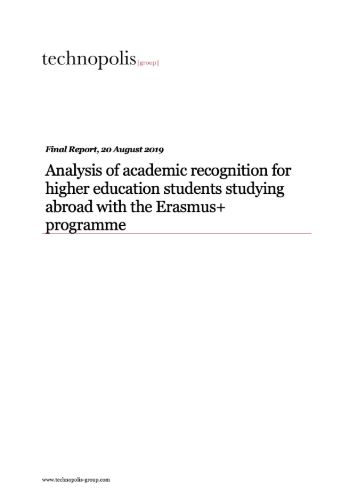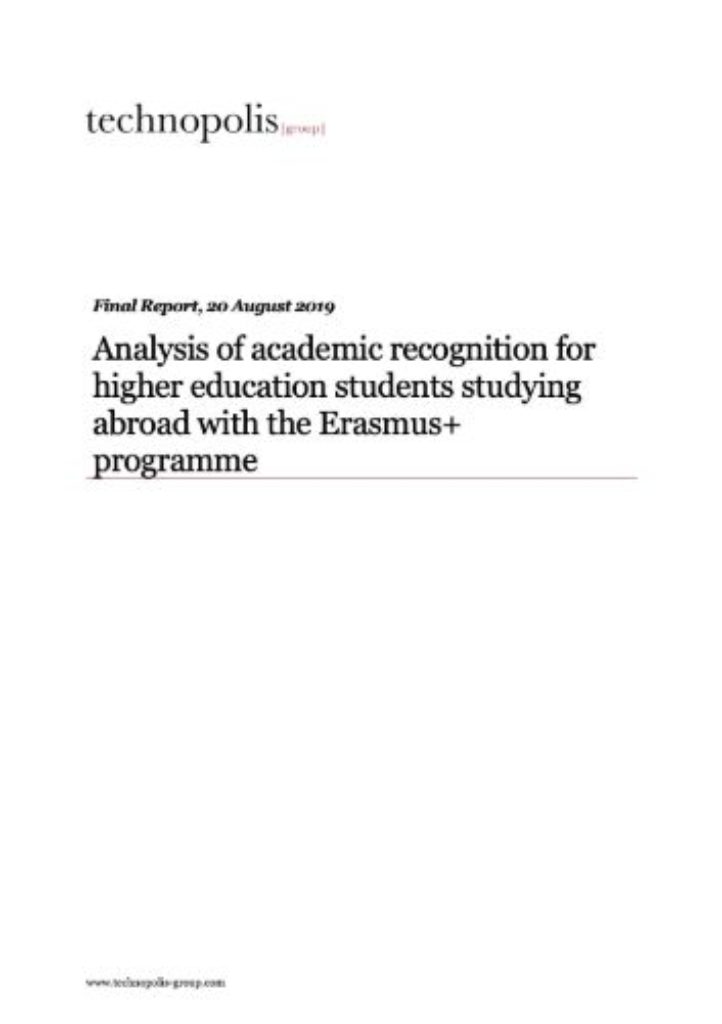Analysis of academic recognition for higher education students studying abroad with the Erasmus+ programme
Date de publication : 20 août 2019 | langue de rapport : EN
Academic recognition of the period of study abroad is one of the key objectives of the Erasmus+ programme.
There have been continuous improvements in defining the processes for recognition but still not all students receive full recognition for the studies they undertake abroad. In this study, the barriers towards full recognition were investigated in five countries: Denmark, Estonia, Latvia, Poland, and Sweden. Both existing data as well as new data were analysed. The situation in the respective countries were presented in separate case studies. A synthesised analysis was also included in the study.








